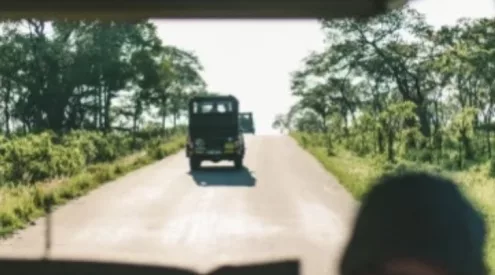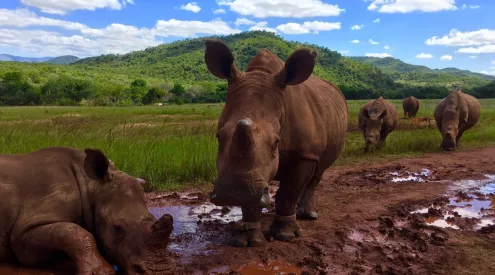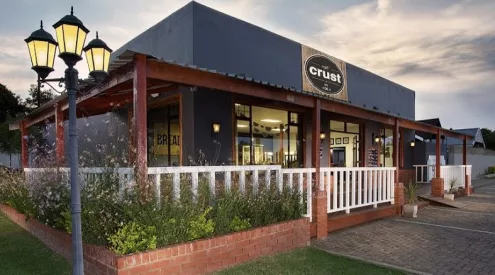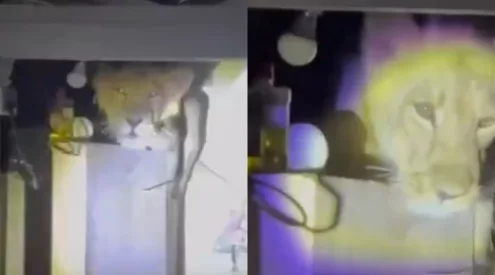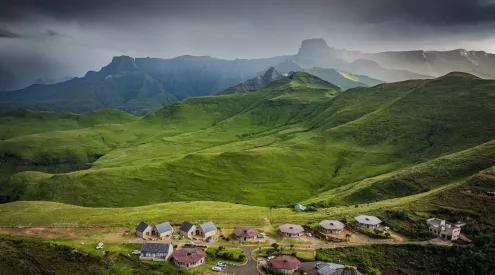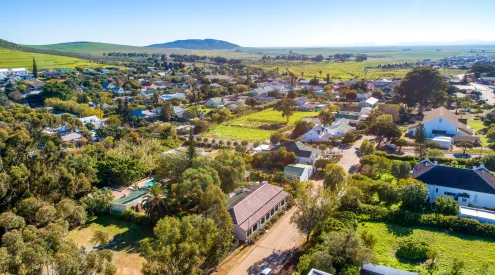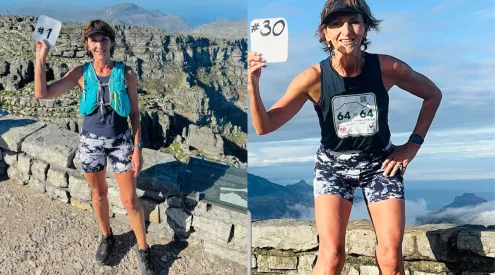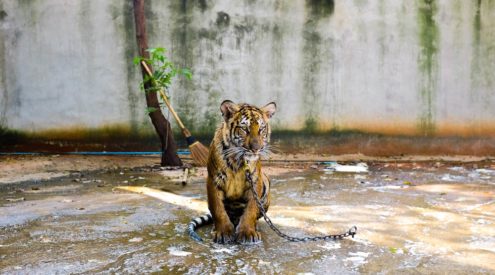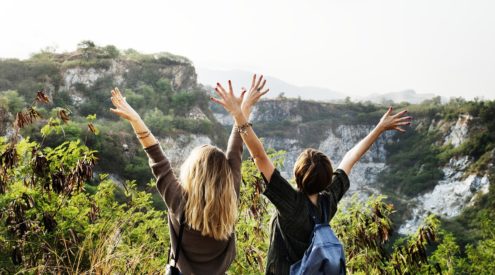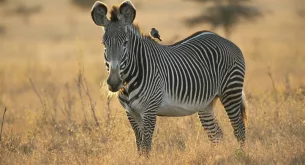On Monday my wife and I arrived at Motswari Game Lodge in the Timbavati Game Reserve, which overlooks a sandy riverbed and some brackish pools left behind by January’s destructive deluge. It’s a marvellous, understated little camp, well-tree’d and orb-web gossamer-ed, with comfortable rondavels sensibly spaced and angled to ensure one’s outdoor shower doesn’t ‘Wow’ the morning game drive. I’ll write more about our capers in the reserve shortly, but right now my mind is occupied with a question or two concerning bush characters.
When I think ‘bush character’ the image that comes to mind is Kingsley Holgate, or some biblical beard-stroker variant such as the late Patrick Mynhard playing Herman Charles Bosman’s Oom Schalk Lourens perhaps, or even Hemingway. To be fair the type is not completely beardie. Karen Blixen comes to mind too, but that only underscores the point I want to make: that it seems to me that the image many people carry around of the ‘bush character’ is a horrendous colonial anachronism, a thing badly bogged down in the sands of time, kept there by advertisers and publishers who understand that nostalgia for the colonial romance still sells (apologies Kingsley, but one doubts that your recent adventures would have been underwritten by a popular brand of rum if your mien wasn’t so piratical).
Before she became director of Fair Trade in Tourism SA Kathy Bergs was the manager of Motswari, and although I haven’t spoken to her about it I bet we would agree that this persistent image of the explorer/pioneer is redundant, and is holding back the emergence of far more authentic bushveld types. My presumption is based on the fact that Kathy wrote a book about the female employees at Motswari called Matimu – True Stories of the Lives of 20 Remarkable Women. It’s a popular seller at the lodge and the impact it has on lodge life is immediate. A tourist buys the book at lunch, retreats to the rondavel for an afternoon nap and reads a few pages. By dinner, the previously anonymous cook, waiter, cleaner is a person with a name and a history. A moderation of attitude has taken place. Female staff are beamed at, greeted by their first names or even nicknames, they’re praised for their culinary prowess and thanked for being awesome. Hunting the remaining female staff down for similar lionizations becomes something of a lodge sport, and one actually starts to feel a little sorry for the men.
‘I’m going to write a book about the men of Motswari, that’s what I’m going to do,’ said Dave, the current lodge manager. He adds, with a sly smile in the direction of his fiancée Thea, that the men were the one’s guests really ought to be reading about. An idle threat it may have been but there would be no shortage of material if Dave decided to actually do this. For example, both Marka, a game ranger, and Vusi, a waiter, worked in Free State gold mines in the 80s, an enterprise Marka said was far more dangerous and terrifying than tracking lions on foot. ‘Sometimes you would arrive for the evening shift and hear that somebody had died down the mine in the day. Sometimes the body would come out as you were going down. Once, down in the mine, I walked past all the blood still on the rock,’ he said.
Vusi said his first weeks in the Orange Free State as it was then called were the worst times of his life. Fluent only in Shangaan and Swazi, he was unable to answer a white policeman when addressed in Sotho, and was immediately arrested on suspicion of being an illegal immigrant from Mozambique. This was the 80s, a time before national identity documents, when black South Africans carried area documents. When Vusi produced his as proof of his nationality it was torn up in front of his face. He was finally released after correctly answering a number of current affairs questions but even then the police broke out that well-trodden South African palindrome – fokof.
‘Fokof back to the bush,’ is what they told me but I couldn’t leave because I had no money. Eventually I started working as a jackhammer operator in a mine, and I liked that job because I learned the places you could go underground to sleep, where your foreman would never find you,’ said Vusi. Another ranger, Johannes, known as Timbavati’s Leopard Man, is from Mozambique originally. His place in the panoply of Motswari men rests on the fact that he walked across the Kruger National Park by night to get to South Africa, a journey he’s repeated several times since. ‘We still don’t know how he spends his leave,’ say his colleagues, wink wink.
But if Dave writes down the stories of Motswari’s black men, who is going to pen the biographies of the mlungus that have passed through? I’ve been struck in the last few days by just how many lodge managers and senior staff are not South African. It’s something of a trend as far as I can make out, possibly meriting anthropological study – the new-wave rooinekke of the South African bushveld.
Dave, for example, is descended from Norwegian whalers, and his own life has been split between Norway, the UK, and Southern Africa. When it comes to global citizenship claims, his wife, Thea, draws an even longer bow – she’s Swiss-German, but as her father headed the Swiss Development Agency in Nepal for a time she grew up having her cheeks pinched by Nepalese grannies in Kathmandu. I’ve already mentioned Jaap, the Dutch spinning instructor who became gatvol of Holland and found work in a Tanzanian game reserve before ending up at Sabi Sabi Private Game Reserve.
Umlani Camp is also managed by a David, and he’s perhaps the most colourful of the lot. Trained as an ecologist, he ended up working for a company that conducted clinical trials all over the world. He’s also a qualified fitness instructor, masseuse and, until recently, competed as a submission wrestler. He opted for a life in the bush after going on safari several times.
So the old bushveld stereotypes must move out of the way, and I think they are, slowly, but when introducing new ones it’s important to include this new breed of white bush character in the purview. After all, they seem to be amongst the most progressive-minded bushveld managers around. It would be good to get to the bottom of why that is so.
To read more about FTTSA and see a list of all certified businesses go to www.fairtourismsa.org.za or join FTTSA on Facebook.
To receive a quote or book a vehicle with Avis go to www.avis.co.za

